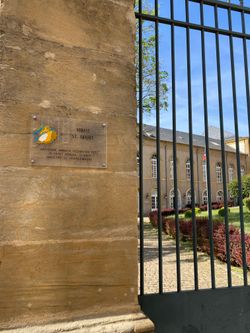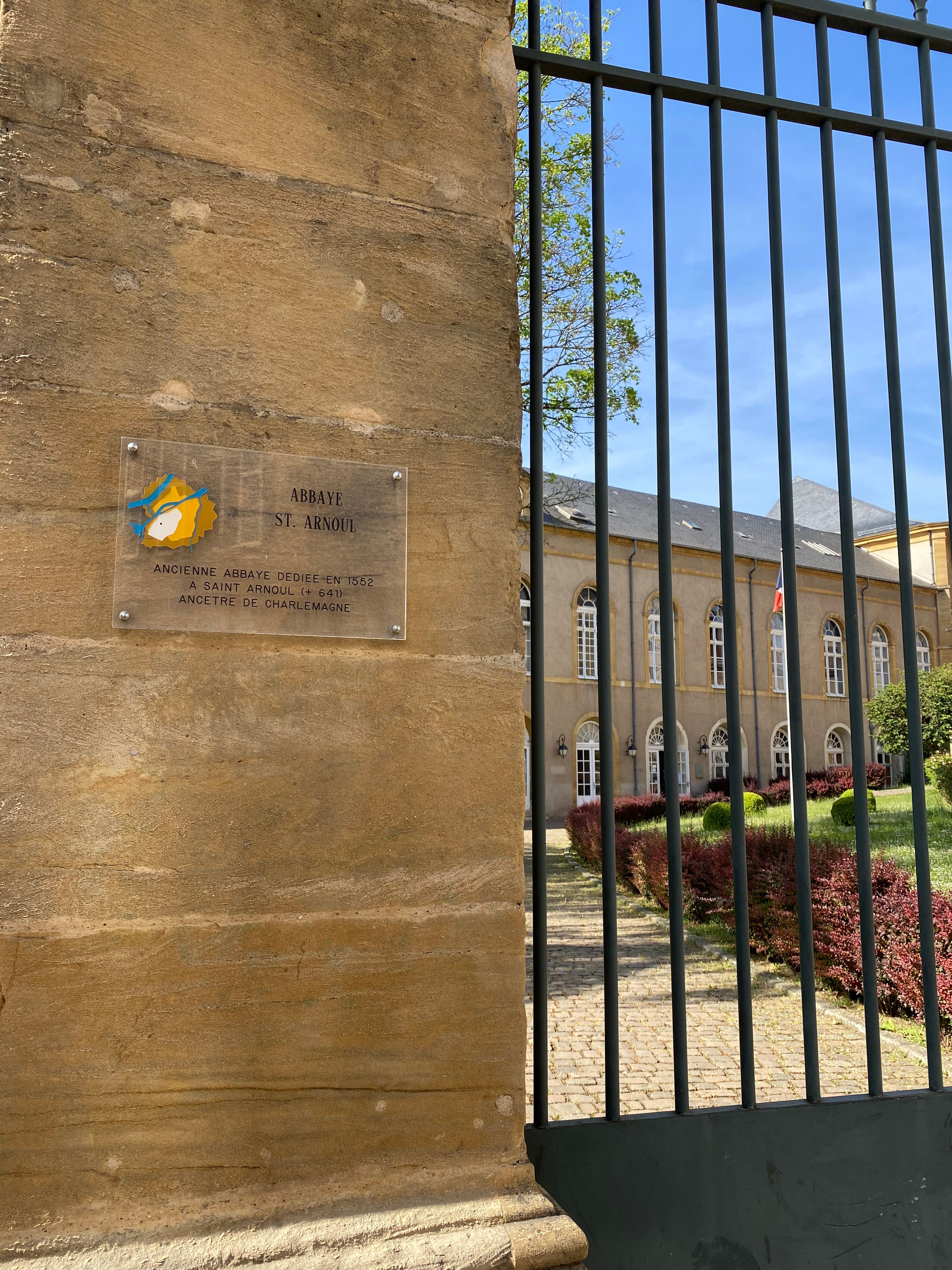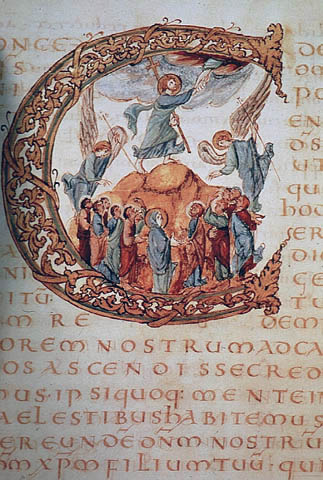As one of the few children to outlive his father, Drogo's prospects for political power were very favourable. Only one older son of Charlemagne remained, and was eager to ensure his few opponents were placated. He became a cleric in 818, abbot of Luxeuil in 820, acceded to become bishop of Metz in 823 and arch chapter in 834 in which position he remained for the duration of his life. His younger (full) brother, Hugh, was also ordained. He remained extremely loyal to his (half) brother, Louis the Pious and amassed great power under him. Drogo's influence began to wane after Louis' death, and his influence fell even more after the death of his only full brother Hugh in 844. Still, he managed to ensure the production of the Drogo Sacramentary, which is named for him.
The Drogo Sacramentary is a Carolingian illuminated manuscript on vellum of c.850, one of the monuments of Carolingian book illumination. A sacramentary is a book containing all the prayers spoken by the officiating priest during the course of the year. The Sacramentary was written and painted for the personal use of Charlemagne's son Drogo, bishop of Metz. Metz was an important bishopric:
He died December 8, 855 after falling into the River Oignon in which he was fishing. A list of bishops of Metz records "domnus Drogo archiepiscopus et sacri palate summus capellanus, filius Karoli imperatoris" as 40th bishop, holding the position for 32 years, 5 months and 7 days.
As one of the few children to outlive his father, Drogo's prospects for political power were very favourable. Only one older son of Charlemagne remained, and was eager to ensure his few opponents were placated. He became a cleric in 818, abbot of Luxeuil in 820, acceded to become bishop of Metz in 823 and arch chapter in 834 in which position he remained for the duration of his life. His younger (full) brother, Hugh, was also ordained. He remained extremely loyal to his (half) brother, Louis the Pious and amassed great power under him. Drogo's influence began to wane after Louis' death, and his influence fell even more after the death of his only full brother Hugh in 844. Still, he managed to ensure the production of the Drogo Sacramentary, which is named for him.
The Drogo Sacramentary is a Carolingian illuminated manuscript on vellum of c.850, one of the monuments of Carolingian book illumination. A sacramentary is a book containing all the prayers spoken by the officiating priest during the course of the year. The Sacramentary was written and painted for the personal use of Charlemagne's son Drogo, bishop of Metz. Metz was an important bishopric:
He died December 8, 855 after falling into the River Oignon in which he was fishing. A list of bishops of Metz records "domnus Drogo archiepiscopus et sacri palate summus capellanus, filius Karoli imperatoris" as 40th bishop, holding the position for 32 years, 5 months and 7 days.
Family Members
Advertisement
Advertisement










